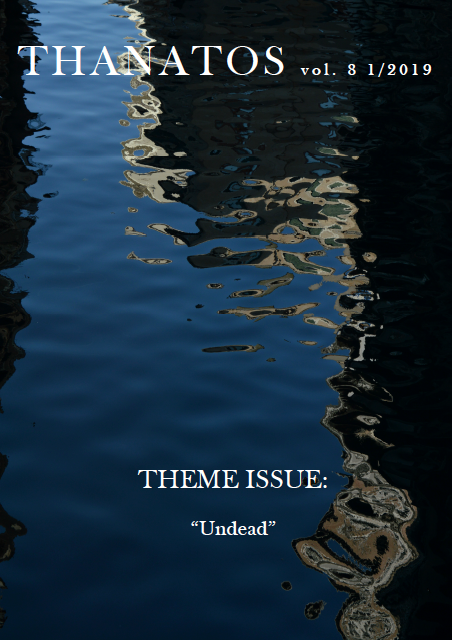Zombies, Vampires and Frankenstein’s Monster – Embodied Experiences of Illness in Living Dead Films
Abstrakti
The living dead, such as vampires, zombies and Frankenstein’s monster, serve the role of monsters in many horror films. They are liminal characters whose continuing corporeal existence questions the limits of life and death. Their problematic and abnormal bodies also symbolize the boundaries between normal, proper or healthy bodies and abnormal or unhealthy bodies. For these reasons, the living dead have the potential to create embodied narratives of illness.
In this article, I discuss three different allegories of illness in contemporary living dead films. First, I focus on lifestyle-generated health issues in vampire films that emphasize the consequences of individual decisions and social stigma. Secondly, I examine how zombies symbolize progressive and degenerative diseases, such as memory diseases, which alienate the living from those affected. Thirdly, I use the Frankenstein narrative to discuss the limits of medical science. In particular, I am interested in how organ transplants, as a way of treating sick bodies raise questions of (personal and social) identity.
My analysis shows that living dead films symbolically express fears related to fragile bodies and progressive illnesses. The degenerative processes of the body are portrayed as monstrous, and they have severe consequences for identity and sense of self. In these terrifying storylines, the living dead are easily discriminated against and viewed with horror. This demonstrates the various effects that illness has on social roles and social identities. I argue that by symbolizing experiences of illness through dreaded monsters, these horror stories both reveal and stigmatize the health issues they represent. Embodied experience of living death has the potential to illustrate what people with long-term illnesses (and their families) are facing, yet the context of the horror genre creates an ambiguity about whether it is the illness or the person with the illness that is seen as monstrous.
Tiedostolataukset
Julkaistu
Numero
Osasto
Lisenssi
Copyright (c) 2023 Outi Hakola

Tämä työ on lisensoitu Creative Commons Nimeä-EiKaupallinen-EiMuutoksia 4.0 Kansainvälinen Julkinen -lisenssillä.





